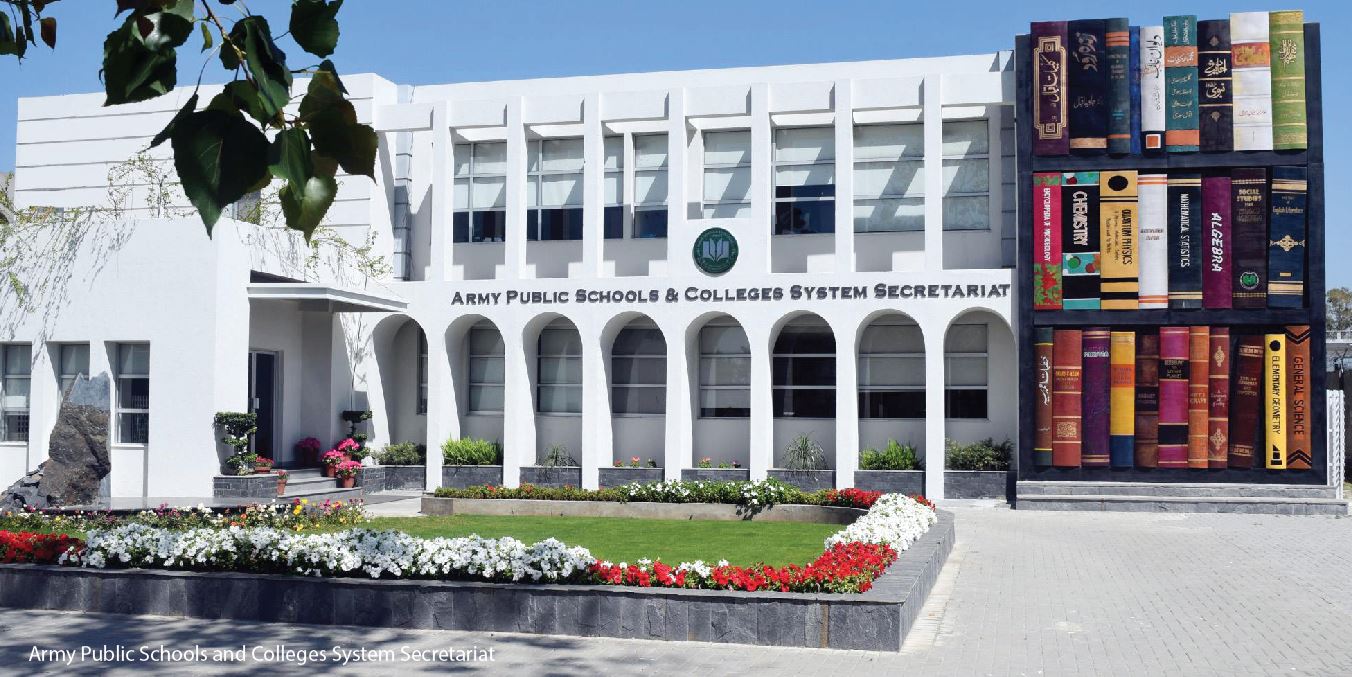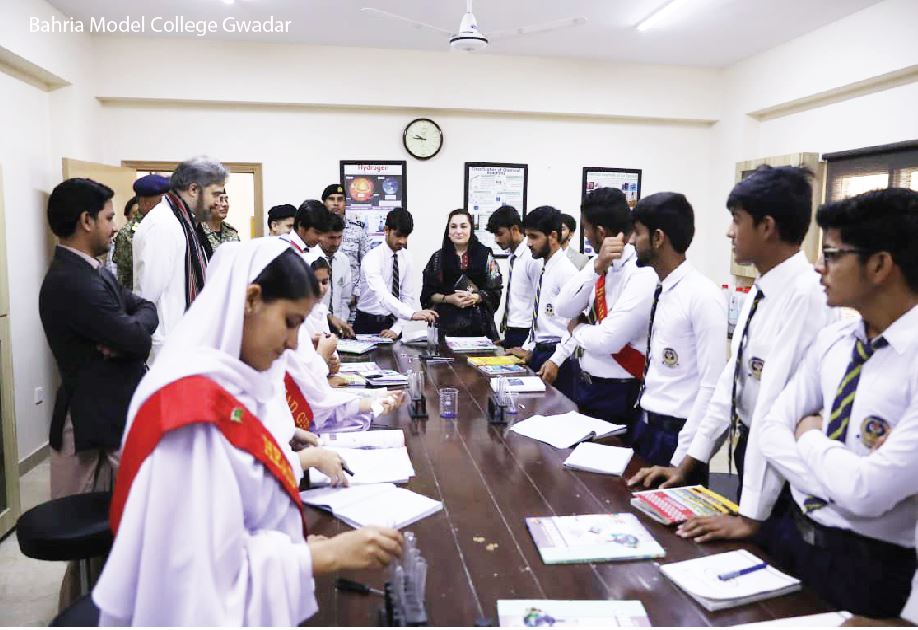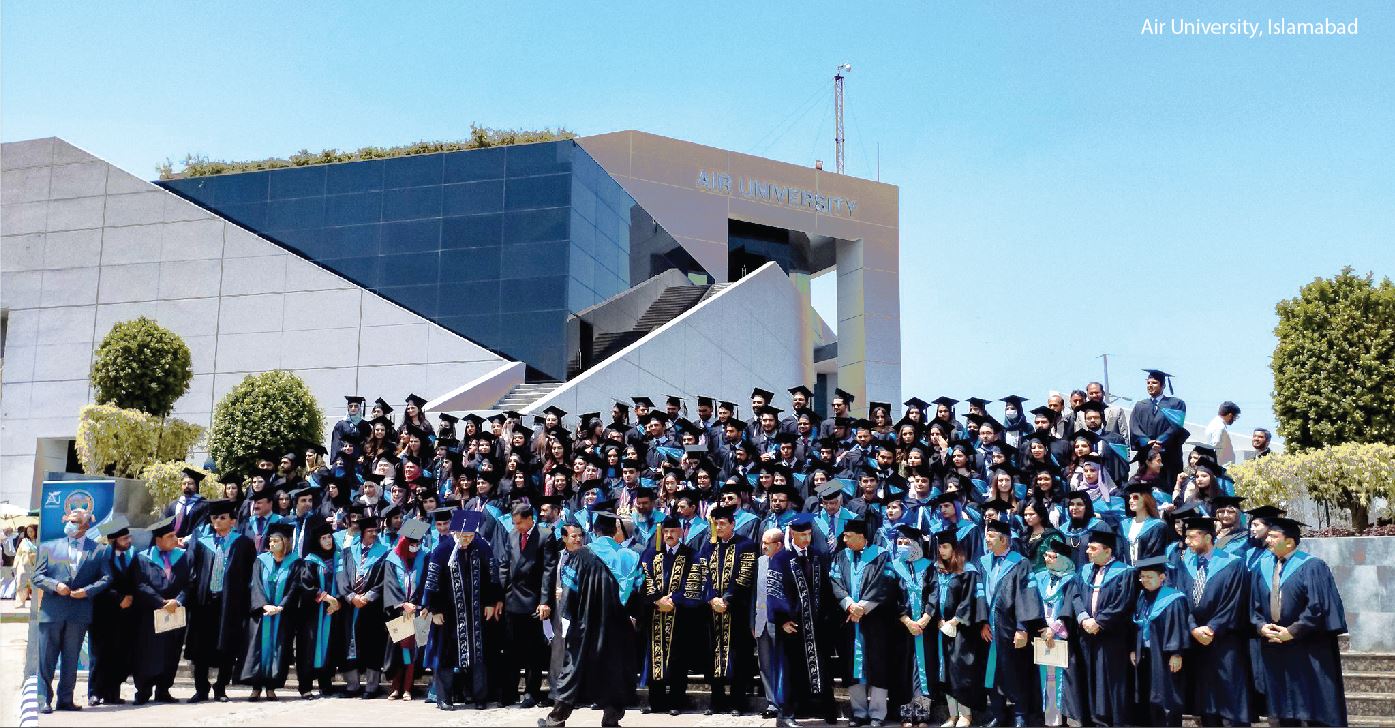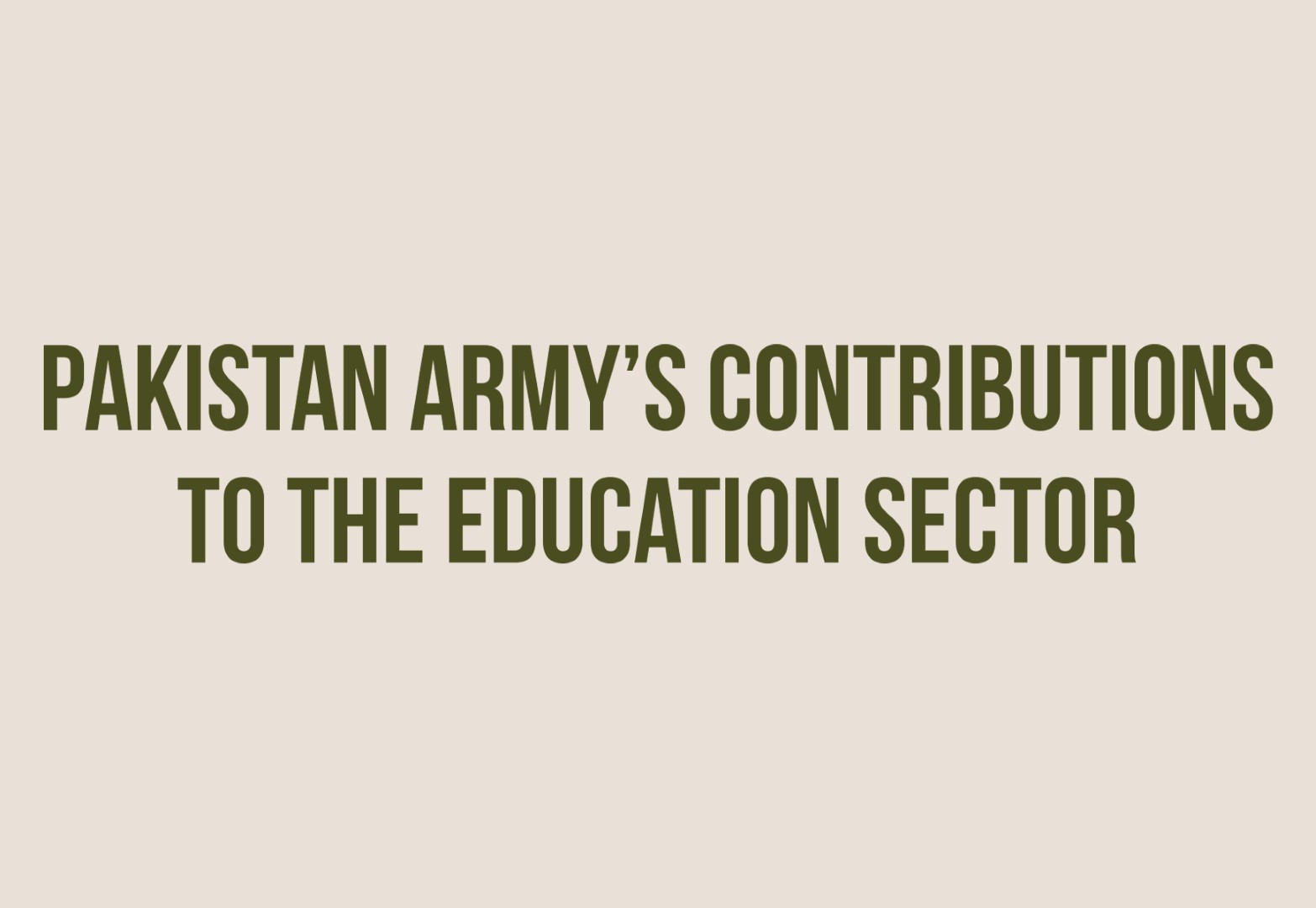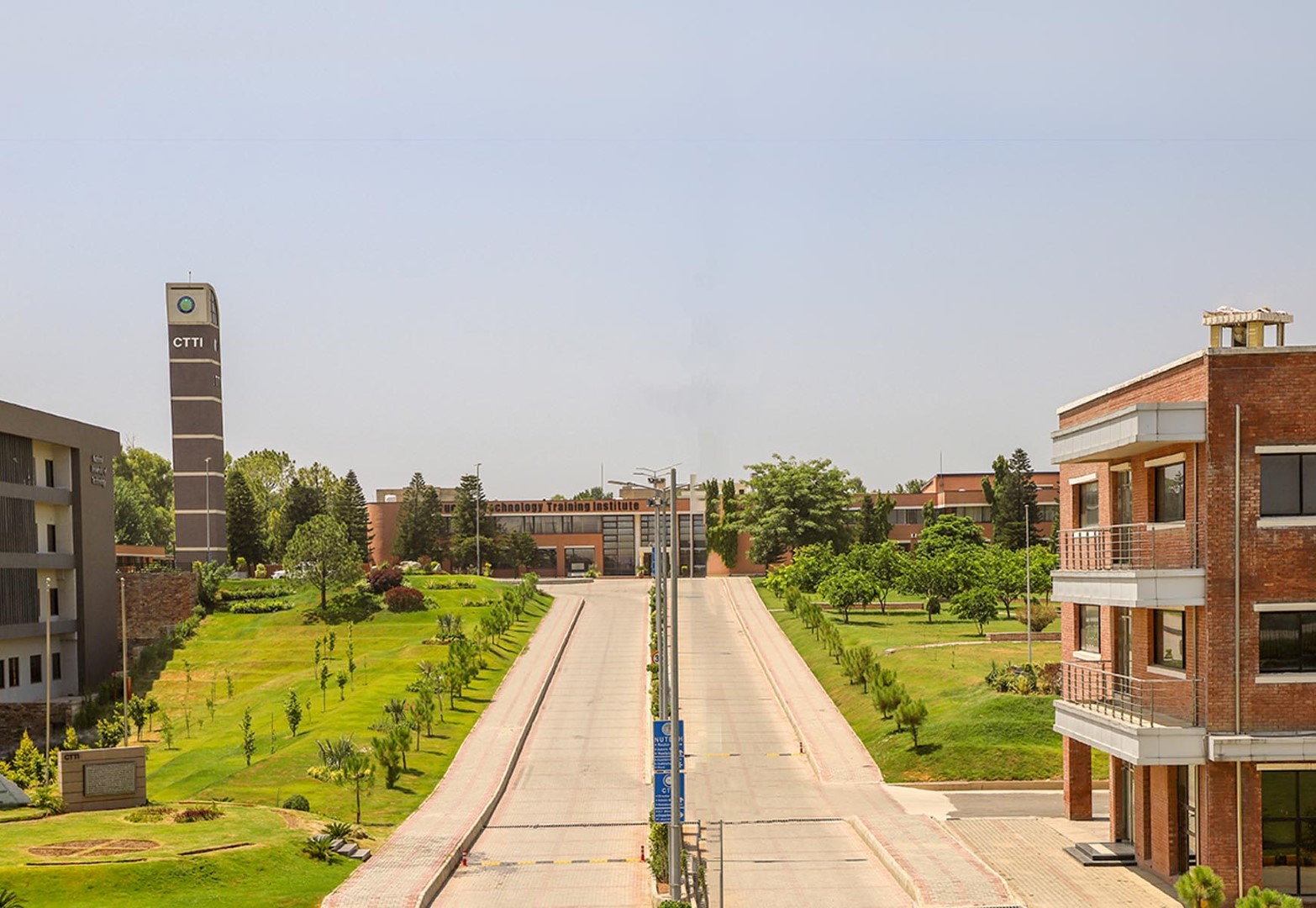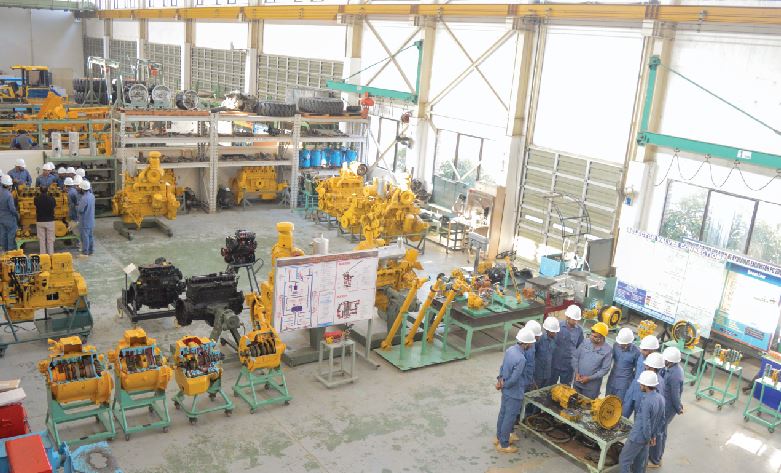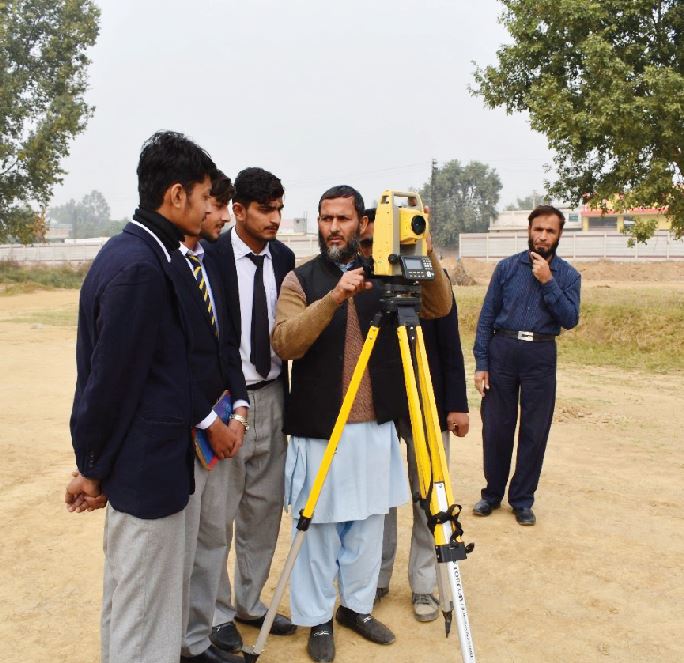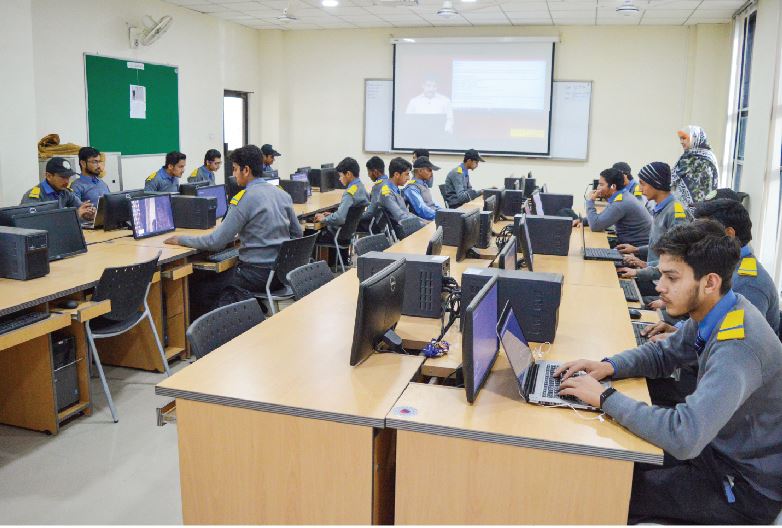Reallocate 10% of specifically ‘army’ budget to education, convert lavish staff houses to hospitals and healthcare facilities.
Army is already doing it from its own budget. FC is also doing it.
Pakistan Army’s Contributions to the Education Sector
Education is the basis of national development. The Armed Forces of Pakistan have been playing a key role in imparting quality education and preparing competitive and responsible citizens in the country.
Tracking the roots of various issues and their solutions, Pakistan Armed Forces’ educational setups are not only imparting quality and modern education, but are also contributing immensely to the national cause by educating 759,426 students up to the Higher Secondary School Certificate (HSSC) level (2 percent of the 39.58 million student population) and 71,411 students of higher education level (3.25 percent of 2.18 million student population). The following paragraphs outline various initiatives through which Army has been contributing towards the education sector.
Army Public School and College System
Army Public School and College System (APSACS) is the largest contributor to national education, maintaining a countrywide footprint and imparting uniform, quality education to students of varied socioeconomic backgrounds at affordable costs, i.e., 50 percent less in comparison to the equivalent system. The system is supplied with 200 institutions providing education to 258,316 students (46 percent belonging to the non-military background) and maintaining 23 schools in the border regions. It is sustained through Army’s resources, with approximately Rs. 831 million annual expenditure on cost-effective education vis-à-vis comparative education systems. APSACS provides training to teachers and staff. To date, a total of 81,655 teachers have been trained since the inception of APSACS in 2005. The school system has helped create over 23,000 teaching and non-teaching jobs, out of which 95 percent of the faculty is civilian. The Holistic Development and Enrichment Program benefitted 0.27 million students and 17,646 teachers.
Army’s Support to Federal Education Sector
The public sector federal education system is spread all over the country in military cantonments with the vision to provide purposeful and quality education at a very low cost. Federal Government Educational Institutions (FGEI) Directorate’s major contributions include a total of 355 institutions (285 at Secondary School Certificate (SSC) level, 44 at HSSC level and 26 colleges offering undergrad programs), educating 201,367 students (60 percent from non-military background). FGEI has a national spread including less developed areas such as Zhob, Sui, Chaman, Khuzdar, Loralai, Bagh, Landi Kotal and Parachinar. The system is supported by Army with an annual subsidy of approximately Rs. 150 million, as only 20 percent of the required funds are provided by the federal government.
Contributions to Special Education
As a philanthropic initiative for children with disabilities, Pakistan Army has established 25 special education schools all over Pakistan, having 4,000 students on its roll with 80 percent from non-military background. In order to bring special children into the mainstream, three special children schools are being run by the Navy in Karachi and Islamabad with a total of 466 students, 86 percent belonging to the non-military background.
Higher Education’s Contribution to Youth’s Development
Armed forces have a major role in establishing higher education institutes for imparting quality education to the youth as an assistance to the Government of Pakistan through six major universities, namely, National University of Sciences and Technology (NUST), National University of Modern Languages (NUML), National University of Medical Sciences (NUMS), National University of Technology (NUTECH), Bahria University and Air University.
NUST constitutes nine colleges and twenty constituent institutions. The university is ranked 358th in the global ranking, 74th in Asia and 1st in Pakistan. NUST is educating 18,144 Pakistani and 531 foreign students per year (85 percent from non-military background).
NUML is a fully autonomous body with nine regional campuses offering education to 22,301 students per year (95 percent students from non-military background).
NUMS was established as a federal public sector university in October 2015. The university is backed up by an extensive network of 45 military hospitals, 12 single specialty institutes, 10 medical colleges and 4 nursing colleges, making it the country’s largest healthcare provider in terms of trajectory and patient volume. Constituent institutions, Army Medical College (AMC) Rawalpindi and Combined Military Hospital (CMH) Lahore Medical College were granted A+ grading (best grading in the respective category) in Pakistan by Pakistan Medical Commission (PMC) in the year 2019. NUMS imparts education to 5,400 students per year, which includes 80 percent students from non-military background.
NUTECH is another eminent university imparting education to 1,149 students per year with 46 percent students from the civilian background.
Military College and Cadet Colleges
3 military colleges (100 percent Army run) and 32 Cadet Colleges (under provincial governments with target staff, especially from military) across the country, including remote areas, are imparting education to 6,280 students with 31 percent students belonging to the non-military segment of the society.
79 hostels have been established at Army formations and unit-levels for the wards of shuhada and non-military segment of the society belonging to Newly Merged Districts, remote areas of Balochistan, Khyber Pakhtunkhwa (KP) and Gilgit-Baltistan (GB). A total of 3,868 students are being accommodated with 35 percent from the non-military background.
Defence Housing Authority’s Contribution to the Education Sector
Defence Housing Authority (DHA) in Rawalpindi, Lahore and Karachi is running 29 schools and colleges which are imparting SSC and HSSC level education to 26,604 students (4.65 percent military and 95.35 percent non-military background).
Schools Being Run by CAFs
Rangers and Frontier Constabulary (FC) are also contributing to the cause of education by running 176 schools in the underdeveloped and remote areas of the country, imparting education to a total of 58,298 students, mostly from non-military background.
Pakistan Coast Guards (PCG) are running Government Education Institutes (GEIs) comprising 3 schools up to SSC level and 2 colleges (HSSC level) in Karachi. The system is educating a total of 4,313 students (65 percent from non-military background). Approximately Rs. 4 million subsidy (school fee exemption) is being provided on an annual basis due to the COVID-19 pandemic.
Army’s Contribution to Technical and Vocational Training
Over 26 vocational and technical training institutions spread all over the country are educating 5312 students, with 10.2 percent female students and 46 percent students belonging to the non-military segment of the society.
Fauji Foundation Education System’s Contribution to Educational Development
Fauji Foundation Education System (FFES) includes Foundation University Islamabad, 117 educational institutions including 38 inter level colleges, 8 Foundation Institutes of Technology (FITs) and a Foundation Institute of Finishing Skills Development (FIFSD), imparting education/training to approximately 65,000 students (50 percent civilians and 50 percent employee beneficiaries).
Technical Training Centers (TTCs) and Vocational Training Centers (VTCs) are functioning since 1975 and 1981 respectively, and are now merged as FITs. A total of 275,000 students have been trained at FITs. Pre-release training programs have trained a total of 3,700 serving persons, including 2,500 from Army, 600 from Navy and 600 from Pakistan Air Force (PAF).
According to the Fauji Foundation stipend policy, FF provided over 0.41 million awards to high achievers worth Rs. 1659 million. FFC adopted over 35 schools under its patronage and imparts education in these schools with merit scholarships for students.
Pakistan Navy’s Contribution to Educational Development
Bahria colleges have 14 purpose-built campuses in Karachi, Islamabad and Lahore, imparting up to HSSC level education to a total of 33,770 students, 49 percent belonging to the non-military background (38 percent female students).
In order to provide affordable and quality education in the coastal areas of Sindh and Balochistan, 5 Bahria Model Colleges up to HSSC level have been established. Pakistan Navy is educating a total of 2,197 students, 90 percent belonging to a non-military background (30 percent female students).
An annual subsidy of Rs. 4 million on free education and Rs. 11 million on boarding and lodging facilities is also provided in Model College Ormara. 82 institutions spread all over Pakistan are providing up to HSSC level education to a total of 30,500 students, 85 percent belonging to a non-military background.
To augment the government’s initiatives to provide better education facilities to the people of Balochistan, the Junior Naval Academy and Cadet College Ormara (JNAO) was established. JNAO is educating a total of 271 students, to the HSSC level, with an annual subsidy of Rs. 21 million. In addition to this, two Cadet Colleges are also being supported with a total of 1,600 students studying till HSSC level.
In order to improve higher education in Pakistan, Bahria University was established in 2001, offering education to youth in undergraduate and postgraduate programs in various disciplines including engineering, social, management, environment and medical sciences. Bahria University has three constituent campuses. Ranked 453rd in Asia, it is educating a total of 17,821 students (86 percent belonging to non-military background). Bahria University Medical and Dental College (BUM&DC) was established in 2009 in Karachi, presently imparting education to 596 students in medical sciences. Pakistan Navy is providing merit and need-based scholarships in educational institutions amounting to Rs. 30 million on an annual basis.
Pakistan Air Force’s Contributions to Educational Development
Pakistan Air Force established Fazaia Colleges to promote education in the country. Fazaia Colleges have 26 institutions all over Pakistan, imparting up to HSSC level education to a total of 62,000 students, 25 percent belonging to the non-military background. Brilliant student scholarships amounting to Rs. 37 million and cash prizes for top position holders amounting to Rs. 3.7 million are being extended annually. Air University (AU) was established in 2001 for the promotion of higher education in the country. AU is operating 3 campuses in Islamabad, Multan and Kamra along with 4 constituent institutions with contributions in vast disciplines of engineering, computer, Artificial Intelligence, aerospace, social, management and medical sciences. It is imparting undergraduate and postgraduate education to approximately 6,000 students.
Project Pakistaniat
As per the directives of the Chief of the Army Staff, Project Pakistaniat was initiated to promote patriotism in the youth of APSACS, FGEI and military training institutions. Subsequently, 12 books were published and issued to the relevant institutions. In pursuance of the decision of the Government of Pakistan, curriculum and review of the books to assess the content, wherever applicable, for inclusion in national syllabi, was also carried out.
Education is the basis of national development. The Armed Forces of Pakistan have been playing a key role in imparting quality education and preparing competitive and responsible citizens in the country. Tracking the roots of various issues and their solutions, Pakistan Armed Forces’...

www.hilal.gov.pk




